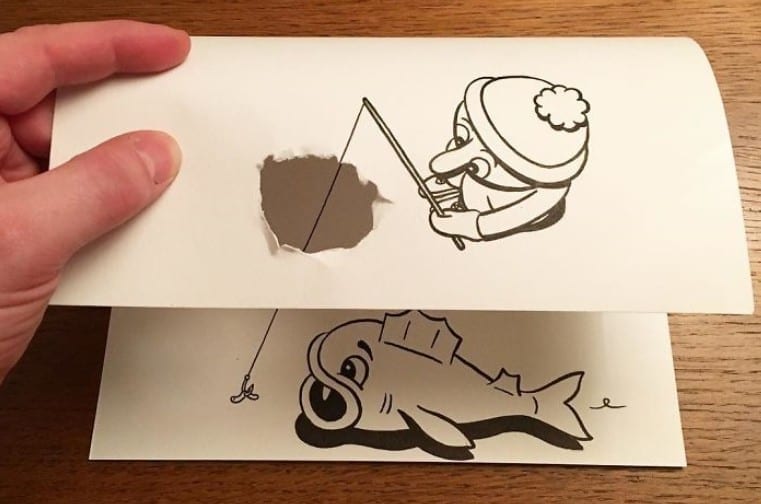Life is full of surprises, some of them of our own making. And not all surprises are fun. I recently had an overflow number of guests for our Shabbos seudah. The ovens in my kitchen were already filled to capacity, and with more food to warm, I resorted to an old basement oven that serves as a spare in case of emergency. As I opened the oven door—surprise!—I was greeted by a horrendous stench. The source of this distinctly not-fun surprise was a pan of forgotten food that, as best I can surmise, must have been sitting there since the Yom Tov season many months earlier. It must have been overlooked when I instructed one of my grandchildren to bring up everything from the downstairs oven. I immediately sprayed Easy-Off, a medley of particularly caustic chemicals, on every inch of the oven’s interior, then applied every cleanser known to mankind—and still could not dispel the offensive odor. I was advised by experts to place a can of coffee granules in the oven, which they assured me is always effective in absorbing odors. However, all of my efforts were ultimately futile and I raised my hands in surrender, believing that my emergency fallback oven was doomed to become a relic of the past. Until this Purim. Every Purim, the local yeshivah dispatches busloads of boys to our side of town to join in our simchas Purim and to circulate among the baalei batim of the neighborhood to contribute to the day’s merriment.

They are a delightful bunch and I look forward to having them at my table. Once again, I was confronted by the logistical challenge of feeding more guests than my regular ovens could accommodate. In desperation, I prayerfully and reluctantly put the extra food into the downstairs oven. Lo and behold, a remarkable thing happened. The aroma of the delicious fare canceled out the objectionable stench. The new scent of meatballs, kreplach and stuffed cabbage achieved what an endless array of chemicals, vinegar and determined scrubbing had not even made a dent in. Every occurrence, no matter how mundane, is instructive as far as the larger picture of our lives, and my foul-smelling oven experience was no exception. What I took away from it was that the best way to deal with the noxious events in our lives is not to dwell on them excessively, believing erroneously that in so doing we can extricate ourselves from their hold. The more effective approach is to fill ourselves with positive and lighthearted energy. Indeed, we are taught that “a little bit of light banishes a great deal of darkness.” One of the chasidic greats promotes this idea by commenting on the counsel of King David in Tehillim, “Sur meira va’asei tov.” Ordinarily this translates as “Turn away from evil and do good.” The commentator makes a subtle but crucial change, interpreting it to mean “Turn away from the indiscretions and failures.” How? By doing good. This insightful counsel informs us that if we wish to rid ourselves of that which is detrimental to us, we need to break away from our preoccupation with the darkness and immerse ourselves in light.
Consider Emily, who couldn’t make it through a conversation without obsessing about her abusive past. Her grievances and resentment toward the people who had wronged her were all-consuming. Or Shaindel, who couldn’t let go of guilt emanating from regrettable behaviors in which she had indulged when she was younger. Or Debbie, who couldn’t forgive herself for being what she perceived as an inattentive daughter to her now-deceased mother. The list is endless and encompasses a litany of memories that hold people in dark and unforgiving dungeons of the mind. While it is true that a cheshbon hanefesh, an assessment of our spiritual health, can certainly be helpful insofar as it is instructive for the future, obsessing about past shortcomings is ruinous. My father-in-law, z”l, a very wise man, used to say, “There was no event in my life that I considered a failure if I learned from it.” Wallowing in the past is invariably counterproductive, if not actively destructive. It robs one of the ability to enjoy and celebrate the blessings of the present. Over the past half-century, many schools of psychology have abandoned the approach of delving into clients’ often sordid and traumatic histories. Instead, variations of present-oriented therapeutic approaches have successfully replaced the older techniques. It’s pretty clear that all of the scrubbing and laborious efforts to do away with a “malodorous” past are not as effective as simply letting go and filling our lives with bursts of sunshine. Even as there are weeds and thorns in the fields and gardens of the world, there is also an abundance of exquisite, fragrant flowers releasing their scent into the air we breathe. There are also brilliant vistas of beauty to enrich our internal environment, our selves and our psyches. Restoring what appeared to be an oven’s compromised function proved to be a powerful metaphor for reclaiming psychological well-being. It is a lesson worth remembering.



